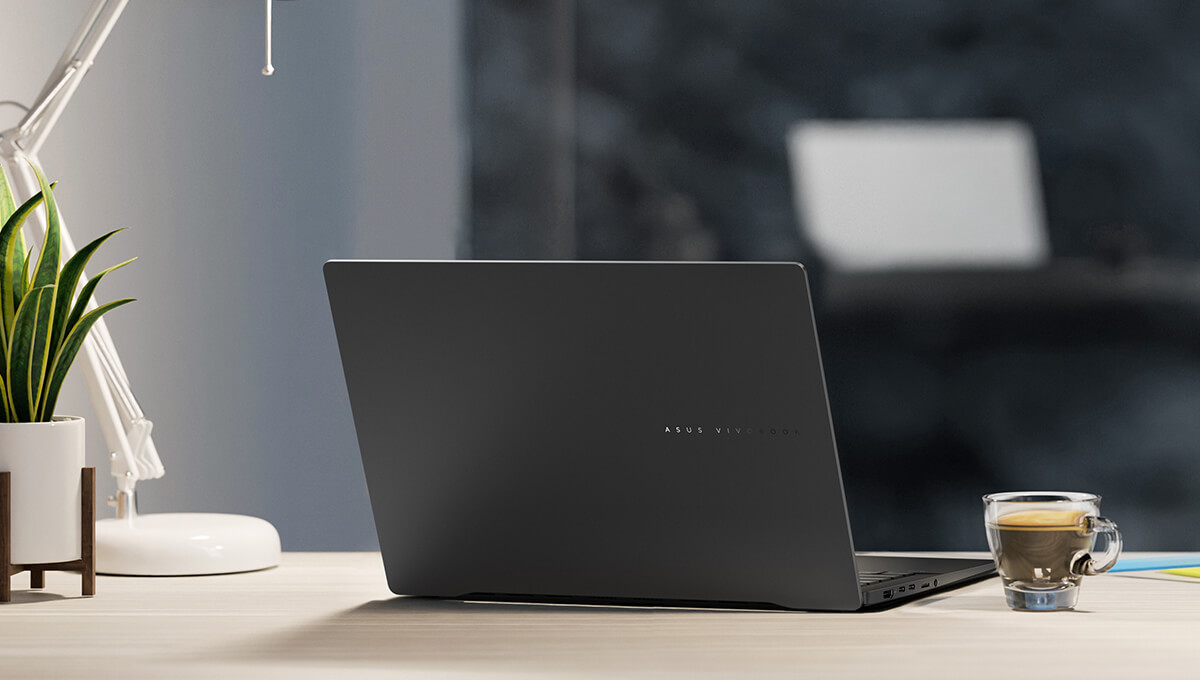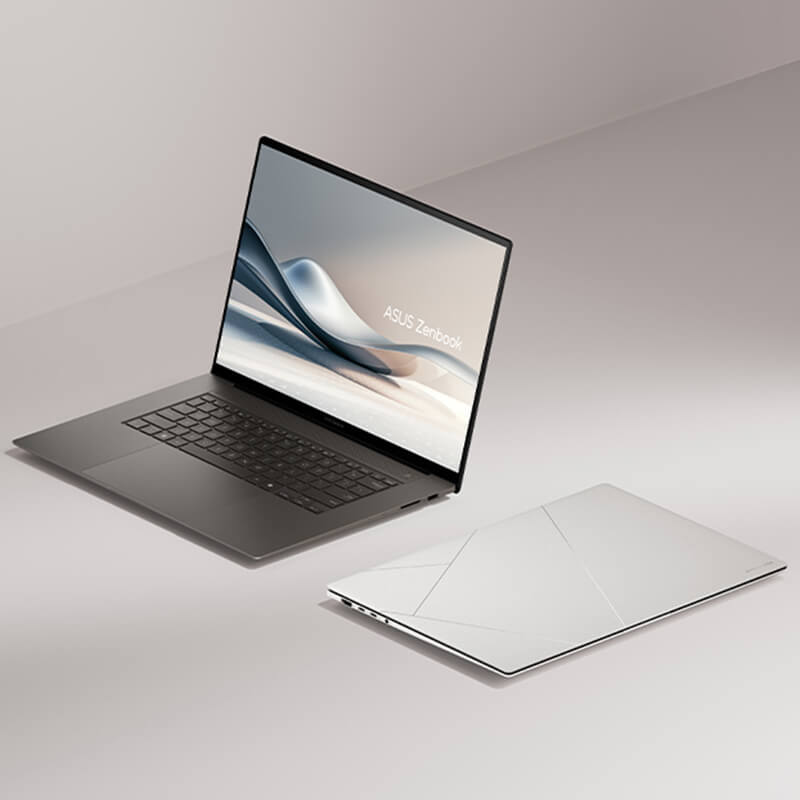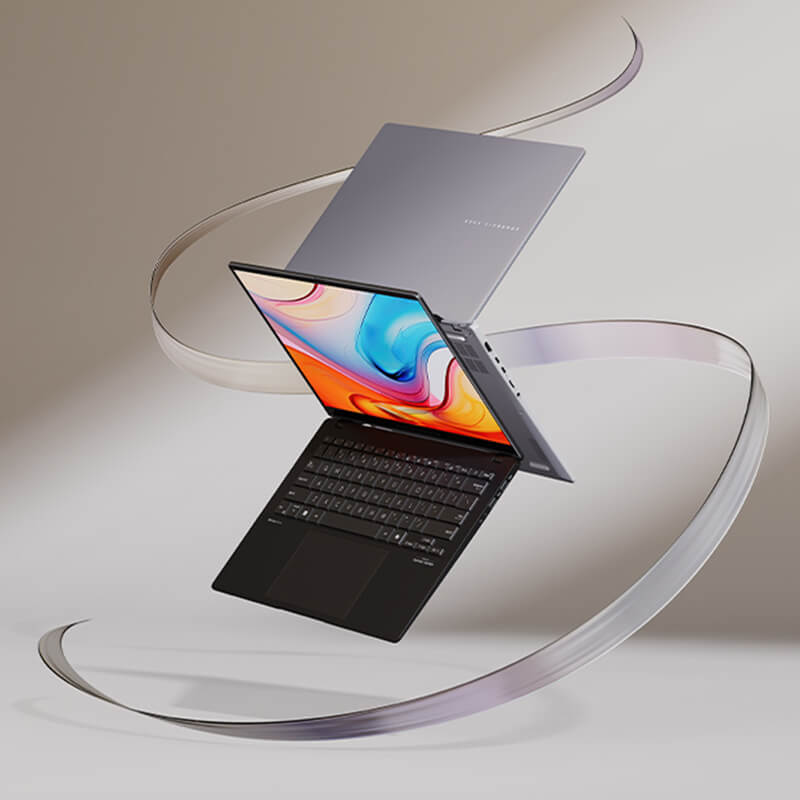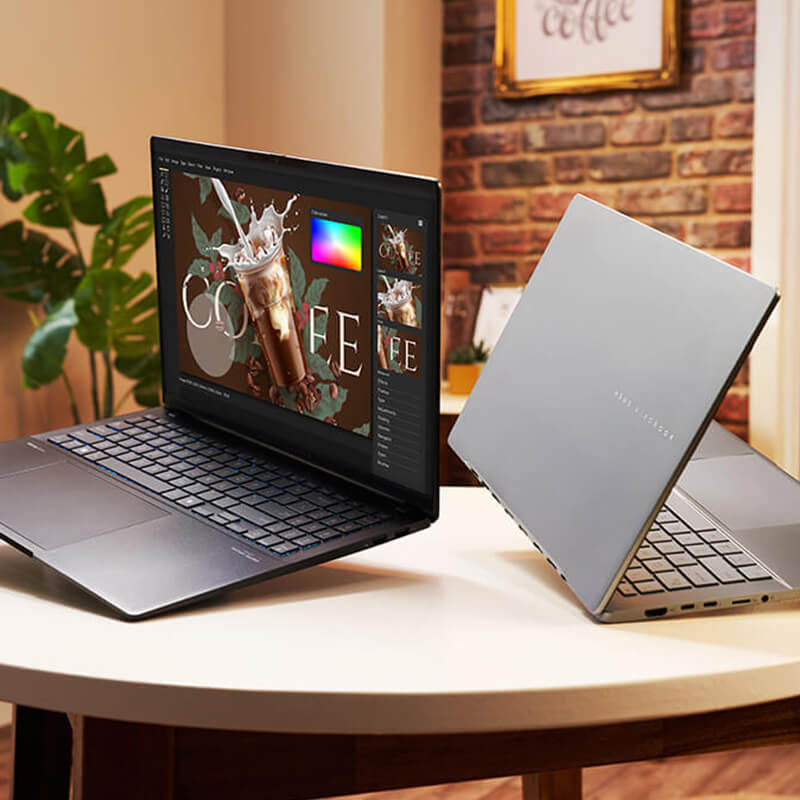
Oct 09, 2024
Choosing the right work laptop is critical for maximizing
productivity, and one of the most essential decisions revolves
around selecting the right processor. AMD processors have gained
a strong reputation in recent years, offering a range of
high-performance options.
AMD Processors, Explained
AMD (Advanced Micro Devices) offers several processor lines,
each designed to cater to specific usage needs. These include:
-
Ryzen™:
The most common series for laptops and desktops. Ryzen™
processors are known for their AI processing capabilities,
as well as multi-core performance, which makes them
well-suited for multitasking, running productivity
applications, and handling everyday office tasks. The
Ryzen lineup spans from Ryzen™ 3 for entry-level needs to
Ryzen™ 9 for high-performance tasks.
-
Athlon™:
A budget-friendly line of processors, primarily aimed at
entry-level laptops. Athlon processors are sufficient for
basic tasks like word processing, internet browsing, and
videoconferencing.
-
Threadripper™:
Although mainly used in desktops, Threadripper™ processors
offer extreme processing power, usually reserved for
specialized professionals such as engineers or video
editors ― or any user requiring immense computational
power.
AMD Ryzen processors are based on Zen architecture, which is
known for energy efficiency, superior performance per watt, and
excellent multi-core capabilities. Ryzen™ processors have also
integrated advanced technologies like Simultaneous
Multithreading (SMT), which allows each core to handle multiple
threads, enhancing multitasking capabilities. This is
particularly useful for office employees who frequently use a
range of applications simultaneously.
AMD Processors’ Capabilities
Understanding what AMD processors are capable of is critical
when selecting a laptop for work. AMD processors excel at
multitasking, particularly the Ryzen series, which comes in
multiple core and thread configurations. For instance, a Ryzen™
5 processor typically features 6 cores and 12 threads, while the
Ryzen™ 7 and Ryzen™ 9 series offer up to 8 or 16 cores,
respectively. This multi-core architecture is a major advantage
for office employees who often run productivity suites (e.g.,
Microsoft Office or Google Workspace), videoconferencing tools
(e.g., Zoom or Teams), and other applications concurrently. With
an AMD processor, you can have several apps open without
sacrificing performance.
The most recent iteration of AMD Ryzen™ processors is the
addition of Ryzen™ AI — a dedicated Neural Processing Unit
(NPU), designed specifically to handle AI tasks.
AMD has gained a reputation for excelling in energy efficiency,
especially with its Zen 3 and Zen 4 architectures. Laptops with
AMD processors typically offer longer battery life, making them
ideal for hybrid or remote employees who may need to move
between locations or work away from power outlets for extended
periods.
AMD’s laptop processors usually come with integrated Radeon™
graphics, which may outperform many competing integrated GPU
solutions. For typical office tasks like videoconferencing,
graphic design, or even light photo editing, an AMD processor
with integrated Radeon™ graphics is more than capable.
Which AMD Processor to Select for Your Usage Scenario
The best AMD processor for you depends on your specific work
tasks and usage scenarios. Here’s a breakdown of which AMD
processor to select based on common work scenarios:
For Basic to Medium Workloads: Ryzen™ 5
For hybrid workers who frequently switch between multiple
applications, engage in videoconferencing, or manage large
datasets, as well as daily tasks such as internet browsing and
running Microsoft Office Suite apps, an AMD Ryzen™ 5 processor
offers a perfect balance of price and performance. The Ryzen™ 5
typically features 6 cores and 12 threads, providing ample power
for running office productivity software, web browsers with
multiple tabs, and collaboration tools simultaneously.
A good example would be the Ryzen™ 5 7535HS, which excels at
providing a smooth multitasking experience without overtaxing
your laptop's battery.
For Heavy-Duty Tasks and Professional Use: Ryzen™ 7 or Ryzen™ 9
If your work involves more demanding applications like video
editing, coding, virtual machines, or running advanced
analytical tools, you will need the extra power provided by
Ryzen™ 7 or Ryzen™ 9 processors. Ryzen™ 7 processors generally
feature 8 cores and 16 threads, while Ryzen™ 9 processors push
that to 12 cores and 24 threads in some configurations.
For office professionals in roles such as software development,
data analysis, or content creation, a Ryzen™ 7 or Ryzen™ 9
processor ensures your laptop can handle even the most demanding
workloads. The Ryzen™ 9 HX 370, for example, is a
high-performance processor that can tackle intensive computing
tasks while maintaining energy efficiency.
Other Factors to Consider
While the processor is the heart of any laptop, there are other
important factors to consider when selecting the best work
laptop:
RAM
The amount of RAM your laptop has is critical, especially for
multitasking. For basic office tasks, 8 GB of RAM may prove
sufficient. However, for more intensive applications or
multitasking, opting for 16 GB or even 32 GB of RAM will provide
a smoother experience. If you’re on edge between two options,
it’s highly recommended to go for the higher RAM amount.
Storage
A laptop equipped with a Solid State Drive (SSD) will provide
much faster read/write speeds, compared to traditional hard
drives. A minimum of 512 GB of SSD storage is recommended for
office work, with 512 GB or higher preferable if you work with
large files or data.
Battery Life
For hybrid workers who need to move between home, office, or
coffee shops, battery life is crucial. AMD laptops have gained
reputations for offering excellent battery life. Look for a
laptop that provides at least 8 hours of battery life on a
single charge.
Portability and Build Quality
If you frequently travel or move between locations, choosing a
lightweight, durable laptop is important. Many ASUS laptops with
AMD processors come in slim, portable designs, making them ideal
for hybrid work environments.
AMD-Powered ASUS Laptops
Below are three top ASUS laptop picks, all powered by AMD.
ASUS Zenbook S 16
ASUS Zenbook S 16
is an ultra-stylish, ultraportable thin and light laptop perfect
for professionals of all levels. Featuring a Ceraluminum™ cover
and colorways inspired by nature, it looks and feels impressive.
It’s powered by up to AMD Ryzen™ AI 9 HX 370 processors,
offering excellent, top-notch processing power without
compromising battery life. The thin (1.1 cm) and lightweight
(1.5 kg) chassis houses a 16-inch 3K ASUS Lumina OLED display
with lifelike colors and eye care benefits.
ASUS Vivobook S 16
ASUS Vivobook S 16
is a sleek, minimalistic laptop designed for the everyday office
heroes and hybrid workers. Featuring up to the cutting-edge AMD
Ryzen™ AI 9 HX 370 processor (but with more budget-friendly
options available as well), this laptop is an affordable option
opening the door to a world of high-performance processing and
next-gen AI experiences. With a slim 1.39 cm profile, weighing
1.5 kg, and with up to a 14+ hour battery life, it’s designed
for on-the-go convenience. The 16-inch display offers plenty of
viewing space for uncompromised working convenience anywhere you
are.
Discover AMD-Powered ASUS Laptops













